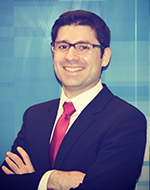The Faculty Seminars for CCLS Staff and PhD Students Become Webinars
Dr Garry Gabison talks about the changes he made following 17th March lockdown to the Faculty Seminar series he runs for CCLS staff and PhD students.
 Since March 17, many things have changed. We have all had to start working from home – whether it be teaching, conducting research, or dissertation supervision. Face-to-face interactions have changed to online interactions – as a matter of course instead of a tool.
Since March 17, many things have changed. We have all had to start working from home – whether it be teaching, conducting research, or dissertation supervision. Face-to-face interactions have changed to online interactions – as a matter of course instead of a tool.
The change to virtual environment has raised many challenges. For example, teaching online requires a whole new skillset with a steep learning curve. Our schedule has become busier with creating new lesson plans catering to online teaching, recording pre-lecture sessions, teaching classes online, and meeting students virtually. What took three hours then, takes six hours now.
This challenge has been met head on by all – not without trials and errors. If nothing else, this challenge has reinforced the wonderful collegiate community that CCLS has fostered over the years. Colleagues meet virtually to share their experience and give each other virtual teaching tips. It has created a lively debate about the best online teaching methods. It has turned online teaching novices into practitioners and practitioners into experts.
Besides teaching, remote working has challenged our ability to communicate with each other. Many studies have showed that emails decrease productivity (e.g., Brynjolfsson, Erik. The productivity paradox of information technology. Communications of the ACM 36, no. 12 (1993): 66-77.). With our reliance on these technologies, many things were about to change but one thing was not: our collegiality.
CCLS has a wonderful community of scholars who co-author articles and books, who exchange ideas, and who intellectually challenge each other. We could no longer pop into our colleagues’ offices to pick their brain. Strangely, video conferences felt more disturbing and intrusive because they had to be planned and choreographed – often with technical difficulties.
Remote working threatened our Faculty Seminar as well. The last two meetings had to be cancelled. However, many colleagues rose to the challenge and soon the Seminar became a Webinar.
The Faculty Webinar is also open to PhD students. It involves a thirty minute presentation followed by a fifteen minute Q&A. However, the format is often more fluid than that: questions start flying fast and slow. A large portion of the faculty attends the Webinar and discusses the topic at hand with a critical eye because – as we know – lawyers love nothing else more than playing the devil’s advocate. The presenter gets some interesting feedback and the attendees get to learn about new topics.
Dr. Miriam Goldby and Prof. Chris Reed have kindly volunteered to present their work over the month of April. Interestingly enough, they both discussed how technologies affect the law and how the law can affect technologies. Dr. Goldby discussed the use of digital record for international shipping while Prof. Reed discussed the use of trust to enable data sharing and exploitation. The next months will see more presentations from colleagues and more ideas being sharpened against the whetstone of our collegiality.
Many things have changed since we moved online but our collegiality has not.